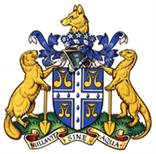Open to
Liverymen / Freemen/ Associates / Guests
Presented by Dr David Lloyd Owen, Envisager
About this Webinar
Wastewater Based Epidemiology (WBE) has emerged as a powerful tool for the early detection of Covid-19 in communities. Unfortunately, the second wave of infections have hit many countries when WBE remains a work in progress. What have we learnt about WBE over the last five months?
- Using frozen samples, Covid-19 has been detected in wastewater up to 2 months before the first symptoms were noted in a community. With daily WBE testing, a lead of up to 12 days can be obtained before symptoms re-emerge as seen is Paris this July.
- WBE allows us to monitor the presence of CV-19 in a community at 0.1% to 0.01% of the per capita cost of personal testing. Using ‘upstream’ testing localised outbreaks have been identified, with asymptomatic individuals being isolated and improved outcomes for others in these communities, such as student halls of residence.
- Sewage is not a pleasant or easy substrate to examine. A great deal of work is going on to develop swifter (and indeed, real-time) testing and even remotely enabled approaches. Covid-19 has highlighted the importance of real-time and smart data for our sector.
- Covid-19, like many things in recent years, has become politicised sector. Societies need to be fully and fairly informed about the challenges they face and the best responses to these. At the very least, WBE gives us the time needed for more considered responses to be adopted and implemented.
About the Speaker
David runs Envisager, advising governments, multilaterals, financiers, NGOs and companies on water markets and policy. He has written three books on water policy, smart water and infrastructure needs. David is a Court Assistant of the Worshipful Company of Water Conservators.
Next events
-
 02 Oct 2025
02 Oct 2025The City Environment Debate – Sustainable UK Cities: What, How and When?
- Arup, 8 Fitzroy Street, London W1T 4BJ, UKLocation




